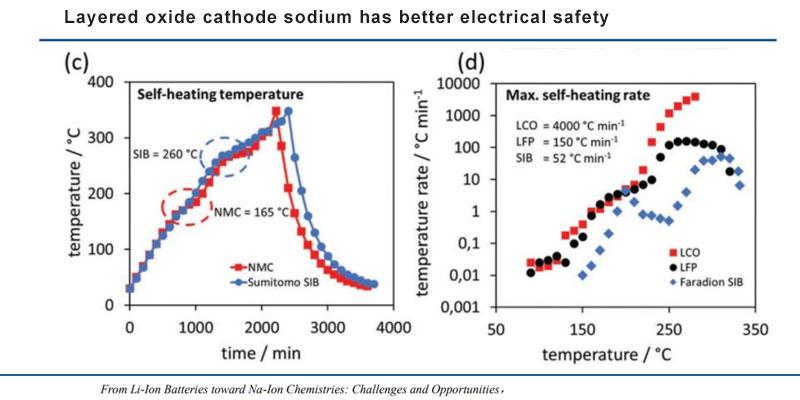Are sodium ion batteries better for the environment
Sodium-Ion Batteries:
A Sustainable Energy Solution
As the global community seeks more environmentally friendly energy storage solutions, sodium-ion batteries are emerging as a compelling alternative to traditional lithium-ion batteries. This extensive analysis covers the environmental benefits, economic implications, and technological advancements associated with sodium batteries, with a focus on how Himax Electronics is enhancing their ecological and operational efficiency.
Introduction to Sodium-Ion Battery Technology
Sodium batteries leverage sodium, one of the most abundant elements on earth, to offer a potentially less environmentally damaging and more cost-effective solution compared to lithium batteries. These batteries are particularly promising for their lower material costs, greater resource sustainability, and enhanced safety profiles.
Environmental Advantages of Sodium-Ion Batteries
- Abundance of Sodium:
- Resource Sustainability: Unlike lithium, which is relatively rare and concentrated in specific global regions, sodium is abundantly available worldwide, predominantly in seawater and earth’s crust. This widespread availability could lead to a more stable and less environmentally invasive supply chain.
- Reduced Mining Impact: Sodium can be extracted from seawater through electrolysis or harvested from abundant mineral deposits, both of which have a significantly lower environmental impact compared to the mining processes required for lithium.
- Manufacturing and Production:
- Energy Efficiency: The production of sodium batteries often requires less energy, particularly because sodium processing can occur at lower temperatures compared to lithium. This factor significantly reduces the carbon footprint associated with their manufacture.
- Greener Chemical Processes: Sodium batteries typically use fewer toxic chemicals during their production, minimizing the release of harmful pollutants into the environment.

Economic Benefits and Resource Efficiency
- Cost-Effectiveness:
- Lower Raw Material Costs: The cost of sodium is considerably lower than that of lithium, reflecting the element’s greater natural abundance and easier extraction methods. This price advantage is crucial for scaling up energy storage solutions, especially for large-scale applications like grid storage or electric vehicles.
- Manufacturing Scalability: Due to their compatibility with existing lithium-ion manufacturing infrastructure, sodium batteries can be produced on a large scale without significant new capital investments in specialized equipment.
- Lifecycle Analysis:
- Durability and Longevity: Recent advancements in sodium-ion technology have enhanced their life expectancy, which now competes with that of many lithium-ion batteries. Longer-lasting batteries mean fewer replacements and a reduced volume of waste.
- Improved Recyclability: The simpler chemical makeup of sodium ion batteries enhances their recyclability. Easier recovery of materials at the end of their lifecycle means less environmental impact from disposal and more efficient reuse of battery components.
Himax Electronics: Enhancing Sodium-Ion Battery Technology
Himax Electronics is at the forefront of developing innovative solutions that enhance the efficiency and sustainability of sodium-ion batteries.
- Advanced Battery Management Systems (BMS):
- Optimized Battery Performance: Himax’s sophisticated BMS technology ensures that sodium-ion batteries operate at optimal efficiency. These systems manage the charge and discharge cycles precisely, thereby maximizing the battery’s life and overall performance.
- Safety Innovations: Himax’s BMS also includes advanced safety features that prevent potential issues such as overcharging and overheating, which are crucial for maintaining the structural and chemical integrity of sodium-ion batteries.
- Sustainable Practices and Technological Innovations:
- Research and Development: Himax is committed to continuous improvement in battery technology, focusing on making sodium batteries more effective and environmentally friendly. Their ongoing research aims to further enhance the energy density and reduce the charge times of these batteries.
- Eco-Friendly Initiatives: Himax’s dedication to sustainability influences its operations and products. The company strives to minimize the environmental footprint of its manufacturing processes and actively participates in green technology forums and sustainability initiatives.

Conclusion
Sodium-ion batteries offer significant potential to meet the world’s growing demand for sustainable energy storage solutions. With their reduced environmental impact, lower cost, and improved safety features, they represent a viable and environmentally friendly alternative to traditional battery technologies. Himax Electronics is playing a crucial role in advancing this technology, ensuring that sodium-ion batteries are not only more sustainable but also meet the high-performance standards required by modern energy systems. For those interested in adopting green energy solutions, Himax provides the expertise and innovative products necessary to make the transition to sodium-ion technology successful and sustainable.



